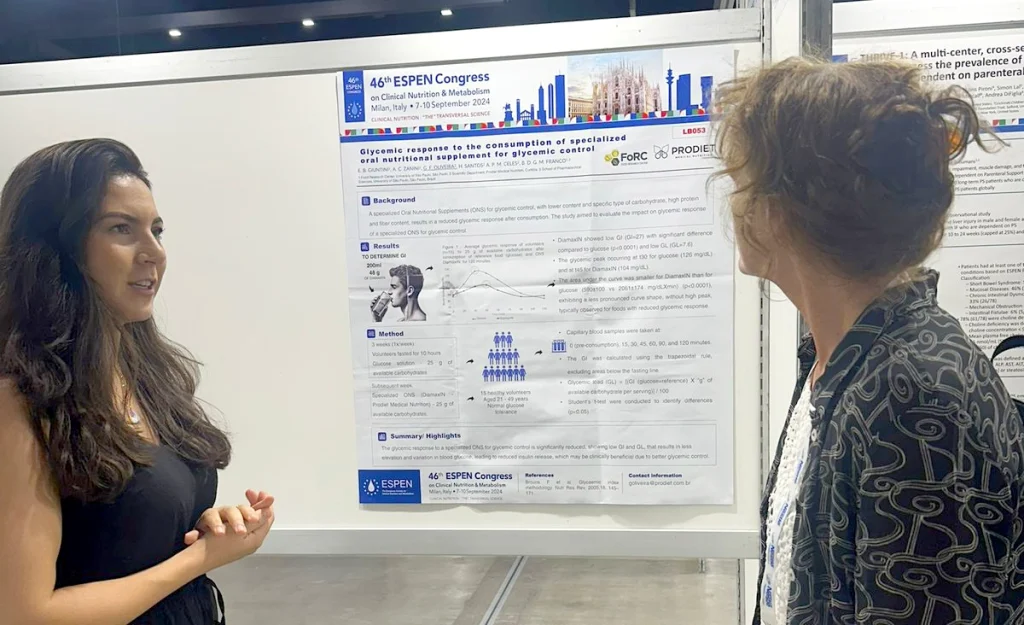The 46th Congress of ESPEN (European Society for Clinical Nutrition and Metabolism) took place in Milan, Italy, from September 7 to 10, breaking participation records with a large international presence and submissions. This year, the central theme was transversal science, highlighting interdisciplinarity in healthcare and the importance of different professionals working together for the well-being of patients.
One of the main topics covered was muscle health, which permeated several sessions at the event. Muscle health was mentioned in discussions on sarcopenia, malnutrition, frailty, among others. The understanding of muscle as not only an organ of locomotion, but also a metabolic organ, brought a new dimension to the debate. The importance of muscle in preventing falls, fractures and even reducing the risk of mortality was highlighted, as was its metabolic relevance in conditions such as diabetes and healing.
Another point discussed was the impact of muscle health on clinical outcomes, such as longer hospital stays, increased risk of hospital complications and reduced respiratory capacity. All these factors highlight the urgency of effective strategies to maintain or restore muscle health, especially in vulnerable populations such as the elderly or patients with chronic diseases.
Advances in the Diagnosis of Sarcopenia
During the congress, global initiatives for the diagnosis of sarcopenia and malnutrition were presented, with constant updates to the assessment criteria. The use of calf circumference, for example, was reviewed for obese patients,
adjusting the estimate of muscle mass to avoid overestimation due to the presence of fat.
Updates to the Clinical Guidelines
The event also brought news of nutritional guidelines for conditions such as dementia, chronic obstructive pulmonary disease and cystic fibrosis. With the advent of new drugs that increase the life expectancy of patients with cystic fibrosis, nutritional care is being reviewed.
Prodiet Medical Nutrition Partnership Studies: Determination of the Glycemic Index of a Specialized Formula and Evaluation with BIVA in Supplemented Oncology Patients
During the congress, studies carried out by Prodiet were presented.

One of these studies was on determining the glycemic index of a specialized formula for glycemic control, DiamaxIN. The research showed that DiamaxIN has a glycemic index of 27, a result that points to the product's potential as a strategy to benefit patients who need strict glycemic control.
Another study was the preliminary result of a study on colon cancer patients undergoing chemotherapy, which indicated that supplementation with Immax can improve cell quality, as evidenced by BIVA, highlighting the relevance of specialized nutrition in cancer treatment.
The ESPEN 2024 Congress showed that clinical nutrition is constantly evolving, with an increasing focus on muscle health and the personalization of nutritional strategies for different clinical conditions. Stay tuned for updates to the guidelines and advances in research for an increasingly effective and evidence-based nutritional practice.






